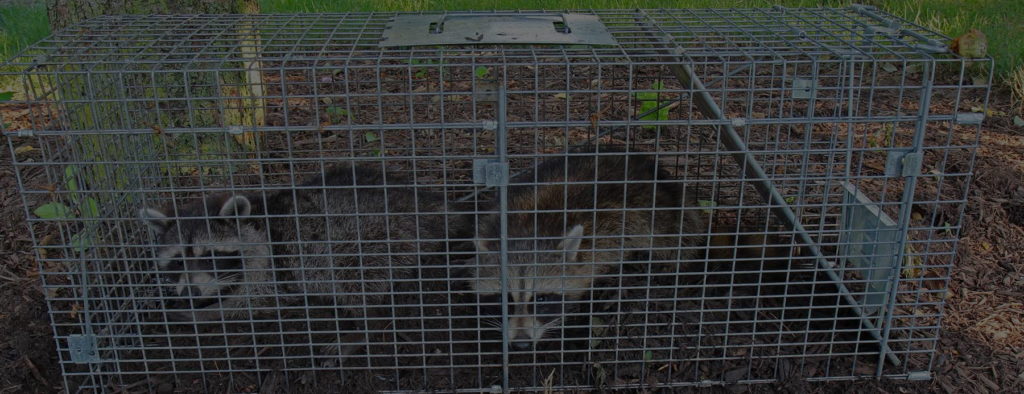
Raccoons share common origins with bears, and they originally resided in forests near waterways. Like their cousins, raccoons are true omnivores who consume a wide array of foods, consisting of nuts, seeds, fruits, eggs, insects, frogs, and crayfish. Jackson MI raccoon removal near me can find an experienced technician in your area. They will eat whatever is readily available, utilizing their dexterous paws to pluck morsels from small hiding places.
A raccoon’s forefeet are very nimble and resemble human hands with their 5 slender fingers. Extremely independent and somewhat solitary animals, raccoons are nocturnal.
Though people have occupied the huge bulk of their conventional environment, raccoons are opportunistic and curious animals and have actually found out to exist side-by-side with people. For these factors, close encounters between raccoons and humans are extremely common in metropolitan and suburbs.
These smart, gregarious animals with the characteristic black mask surrounding their eyes have been known to pry the lids off sealed trash bin, raid campgrounds and coolers, and even turn on the tap for a drink of water. While some people take delight in seeing raccoons’ nighttime shenanigans, others think about the animals’ high jinks as a nuisance. Fortunately, there are plenty of humane, common-sense services to perceived conflicts with these wild animals.
Solving Conflicts Compassionately
Contents
Due to the fact that raccoons are opportunistic feeders, the key to resolving conflicts with them consists of readily available food sources. Once the food is consistent, raccoons will carry on. Seal garbage cans, cover garden compost bins, and location netting over fish ponds.
Putting out the trash on the day that it will be picked up will discourage raccoons from often visiting the area. Feed pet animals inside or make certain to get rid of any food placed outside when the animals have finished eating. Most importantly, never feed wildlife! Keep an outdoor light or radio on at night or utilize motion-detector lights or sprinklers to deter raccoons.
When Do Baby Raccoons Leave the Nest

Raccoons give birth from January through June and typically use attics and chimneys as dens to raise their young. If you find a family of raccoons nesting in or around your house, the animals should not be eliminated until fall in order to avoid separating young raccoons from their moms and dads.
It is inhumane to let the children starve to death, and the mom will also attempt to frantically reach her young and might damage your property at the same time. Young raccoons do not venture out of the nest until they are 8 to 9 weeks of age. Trapping and moving the family is not advised since it will probably separate the mother from her young. Additionally, transferring singular raccoons or little raccoon families is prohibited in many places and will likely lead to their being killed by resident raccoons.
Young Raccoons Stay With Their Mom for a Year
Throughout this time moms are extremely protective and attack anything that comes close to their family. A litter usually includes four to six infants. They’re born during spring and early summer season blind and defenseless. It will take about 3 weeks until their eyes open. Between 4 and 6 weeks the infants begin to stand. The mother weans them between 2 and 3 months. As a group, they’ll leave the den and the mom will guide them through foraging for food. She might carry the babies one-by-one in her mouth to various areas until they are completely mobile.
When you’re sure that the young raccoons have actually left the nest, frightening gadgets, such as a portable radio or a mechanic’s light, can be utilized to force out the animals. Making the area as foul-smelling as possible by placing a couple of ammonia-soaked rags is a very useful deterrent. Since raccoons are nighttime animals, evicting them is easiest around sunset when they begin their nighttime regimens. Storms, dogs barking, or other atypical outdoor disturbances can postpone the eviction. If raccoons should be kicked out during nesting season for safety reasons, it can take a number of days for a mother to move her children to a brand-new nest when humane deterrents are in location.
Raccoons Will Forage at 5 Months
They continue to live with their mother and siblings. The family will stick together through the raccoon’s first winter. Early spring young raccoons will leave their mom’s den
Raccoons can leave their mother’s care anywhere between 8 and 12 months. Although raccoons are equipped to go out on their own, young raccoons may develop dens close to the mother.
When you are certain that the raccoons have actually left, carefully inspect the area for animals prior to installing exclusion devices. Install a chimney cap and repair and seal openings. Never ever use smoke or fire to drive animals out of chimneys. This will almost certainly eliminate young animals who are not physically able to leave on their own– whether they be raccoons, squirrels, opossums, or birds. As soon as locations are sealed, watch and listen for signs that young animals have been trapped inside, consisting of young animals crying out or moving inside walls or components, mothers pacing in the vicinity, or moms scratching, chewing, or pawing at the area. If you discover that young animals have been sealed within, open the sealed area right away so that the mom can take care of her young.
If for some reason you discover an adult raccoon in your home after you seal off points of entry, stay calm. If left alone, raccoons will not trigger any harm. The best thing to do is to close openings supplying access to other parts of your home, open windows, and doors through which the raccoon can exit, and then wait quietly for the animal to escape.
When the raccoons have actually been forced out, you shouldn’t attempt to trap and get rid of raccoons from the property. Trapping and eliminating them will do nothing for long-term control, as the newly uninhabited niche will be rapidly filled by raccoons from surrounding locations. Transferring raccoons– even to the wild or wooded locations– is prohibited in numerous areas and will likely result in their death.
Also Read:
Can Raccoons Break Through Ceiling?
